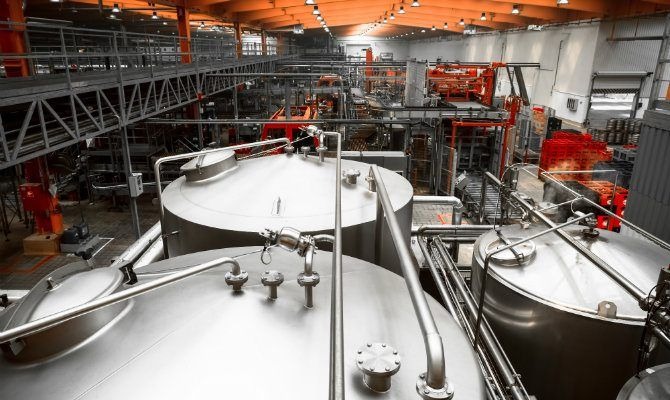Barley The Anheuser-Busch Way
America is home to an array of breweries, but there are only a few that are synonymous with American culture, and Anheuser-Busch is one of them.
Started in 1852, the company has evolved changing the beer industry and introducing people to Budweiser, Michelob, Goose Island, and more. As people take a sip of their favorite brews, many do not realize the intricate process that occurs from the barley plants to breweries and distribution.
"The plant plays an integral role in the beer development process and the barley experts and maltsters I work with are meticulous," said John Drake, Plant Manager at the Idaho Falls Malt Plant. "We are tasked with ensuring the barley that enters the plant leaves the plant as malt ready to be used to brew every day of the year."
Known as the soul of beer, the malting process includes soaking barley kernels in water, germinating the seeds, and then drying them in a kiln. "It maximizes the formation of enzymes that begin to convert the grain's starch into the sugars that will provide nutrition for the yeast used in brewing," Drake said. Taking an average of 5 months from planting to harvesting, the barley then takes approximately 4 days to germinate. The only barley that can be used is malt barley.
The production is always occurring throughout the year, but there is one factor that can cause a ripple effect that impacts the entire industry.
Weather has always been an enigma, and according to Drake, and Anheuser-Busch promotes innovations that help combat weather related issues. There are two programs that are being implemented, including SmartBarley which allows growers in Idaho to see how European famers tackle a similar weather or nature condition. The other program is AgriMet, which is an irrigation scheduler using real-time weather and data.
"We actively partner with public universities to better asses how things like pests affect barley," Drake said. "Each state in the upper Midwest that has a barley breeding program has a pathologist as part of their research staff." The farms also work with scientist to develop better resistance for crops against bacteria, pests and disease.
In the southern Idaho plant, they use specially-adapted winter barley varieties that require 25 percent less water than regular varieties, which can reduce irrigation water applied by more than 1.5 billion liters of water during one growing season.
Once the barley is ready, it is sent to one of the breweries throughout the country, including the Saint Louis location. Dave Maxwell, Brewmaster from Anheuser-Busch, oversees the operations to ensure that everything is done properly and the taste remains consistent. "I am always in contact with our barley plants to see how production is going," he said. "There are over 1 million pounds of grains that arrive by train on a daily basis."
Once the barley arrives to the plant, a sample is taken from each train car to ensure that it meets the standards of Anheuser-Busch.
"From there, the approved grain meets water at the brew house to become sugar water (wort,)" Maxwell said. "The wort is then pumped to fermentation tanks where it is introduced to yeast, at which point it can first truly be called beer."
Creating the beer that countless Americans love, Maxwell explained that the stages that the beer goes through before it is ready for national distribution. "Mashing is the process of soaking the barley malt in hot water for a period of time to allow the enzymes to convert starch into sugar," he said. The mixture also faces lautering, which is the separating of the sugar water from the barley and sparging, which is rinsing the barley so the rest of the sugars separate from the grain.
Once the barley goes through all the brewing stages it is ready for consumption and distribution. Through the entire process, the brewmasters, including Maxwell, taste each batch at least 5 times to ensure that the taste remains consistent.
"One of the things I love about my job is going to supermarket and seeing someone picks one our brews over the other," Maxwell said. "There is a sense of accomplishment, knowing that people enjoy our brews."
"The saying 'no barley, no beer' is true," Drake said. "We have made a promise to ourselves and anyone who enjoys our beers that we'll continue to innovate, drive barley research, and ensure we remain leaders in growing quality resources."
The accompanying slideshow is provided by fellow The Daily Meal Managing Editor, Lauren Gordon.
